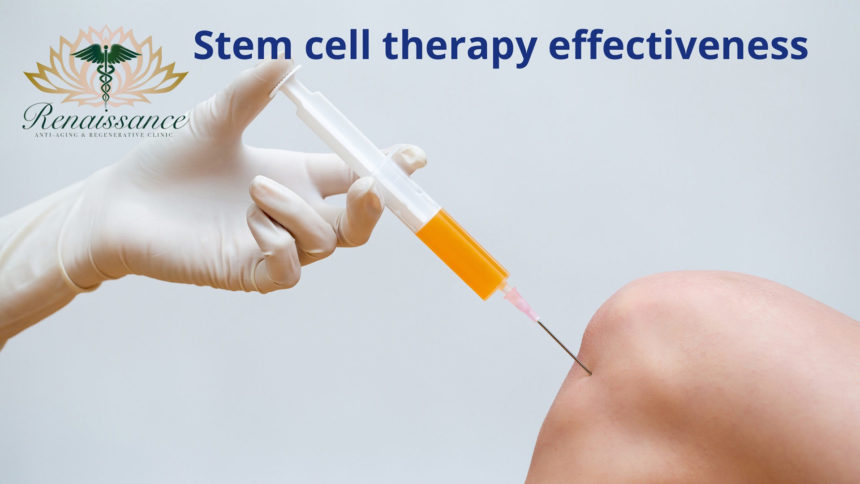4 Factors Which Determine Effectiveness
1. SEVERITY OF INJURY
If you are looking into stem cells as a way to treat an injury, understand that the severity of the injury will have an impact on the effectiveness of the treatment. For example, if you’ve suffered an ACL tear, a partial tear will naturally be easier to repair with stem cells than a complete tear.
Severe injuries can be treated with stem cells, but the process may take longer or require more treatments when compared to minor injuries. Regarding ACL injuries, Regenexx has shown impressive results and has even helped high-profile NFL athletes recover from serious knee ligament injuries without surgical intervention.
For best results, ask us for a consultation immediately after your injury has been diagnosed. The faster you act, the better your recovery will be.
2. AGING
Stem cells promote healing in two ways. First, they themselves can transform into other types of cells, thus creating brand new healthy cells. Second, they tell healthy cells to multiply and create additional ones.
The more advanced your age, the less healthy cells you’ll have to start with. Your therapy will be more effective if you act sooner, rather than later. The more you wait, the less the injected stem cells have to work with. However, stem cells can still have a significant impact on elderly individuals, it just might take additional treatments.
3. TYPE OF STEM CELLS USED
Not all stem cells are created equal. Each source of stem cells has different advantages, with some being able to transform into types of cells that other sources cannot. Stem cells can be derived from a number of places in your body, including bone marrow, birth tissues such as the placenta or umbilical cord, and fat cells.
That latter option produces what are called adipose-derived stem cells, or ASCs. ASCs have been widely researched and are suitable for a wide variety of treatments. They are also much easier to acquire compared to bone marrow stem cells. We produce ASCs via a “mini liposuction” procedure using local anesthetic.
When stem cells are properly collected and enriched, they can be highly effective. This is why we combine our stem cells with platelet-rich plasma (PRP) to ensure optimal results.
4. LIFESTYLE HABITS
Your lifestyle habits also have an impact on how effective stem cell treatment will be. If you smoke or drink heavily, you may find the therapy to be less effective. These unhealthy habits can actually impact the quality of the cells that we take from your body to use in the treatment.
In addition, drinking and smoking inhibits your body’s natural healing processes. If at all possible, cut these habits out of your lifestyle to improve the efficacy of stem cell treatment.
Efficacy of Stem Cells in Specific Conditions
Now that we’ve covered some of the global factors that influence the efficacy of stem cell treatment, let’s look at how effective stem cells are in specific cases. Stem cells have been used to treat a variety of conditions, and research continues to pour in revealing more opportunities for their use. The Guyer Institute is always looking for new ways to put stem cell treatment to use.
We should note that although the FDA has not approved specific stem cell treatments, they are permitted because they use autologous material from your own body. Extensive research on stem cell therapy has proven it to be perfectly safe and we only use FDA-approved devices to separate the stem cells and deliver them to where they are needed in your body.
AUTOIMMUNE DISEASES
Autoimmune diseases occur when the body’s immune system mistakes its own tissues for invaders and attacks them. Stem cells, including ASCs, are capable of regulating the immune system’s response. They can reduce the inflammation caused by immune system cells and reduce chronic pain and the severity of symptoms.
Generally, the standard method of treatment for autoimmune diseases is to prescribe medications that soften the immune system’s response. However, this can lead to an increase in infections. Stem cells, in contrast, can provide relief without those harmful side effects.

